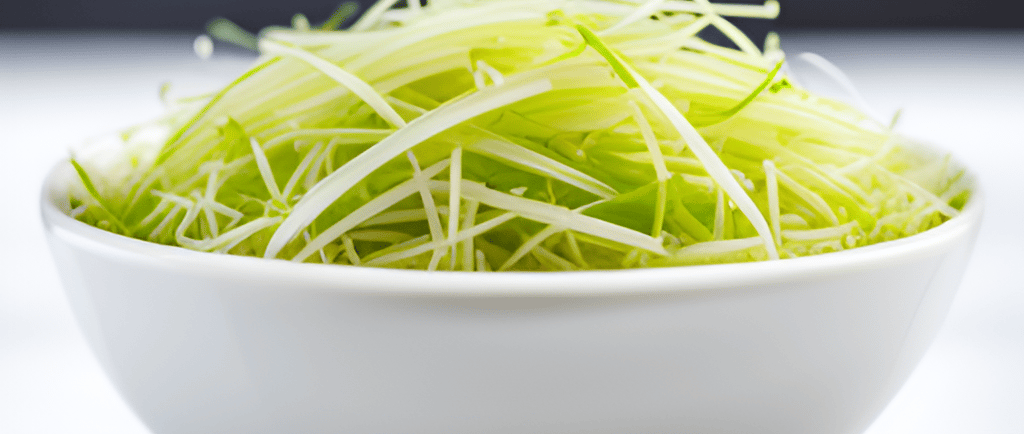alfalfa-sprouts
alfalfa-sprouts
7/22/20232 min read


Alfalfa sprouts are young, tender shoots of the alfalfa plant (Medicago sativa), commonly used in salads, sandwiches, and other dishes as a nutritious and crunchy ingredient.
These sprouts are popular for their mild, slightly nutty flavor and numerous health benefits. Here are some key points about alfalfa sprouts:
Nutritional Profile: Alfalfa sprouts are low in calories and a decent wellspring of fundamental supplements, including nutrients (A, C, K, and some B nutrients), minerals (calcium, iron, magnesium, phosphorus, and potassium), and dietary fiber.
Rich in Antioxidants: Alfalfa sprouts, like other types of sprouts, are high in antioxidants that protect cells from free radical-induced oxidative stress.
Digestive Health: The fiber content in alfalfa sprouts supports healthy digestion and aids in bowel regularity.
Supports Bone Health: Alfalfa sprouts contain vitamin K, which plays a role in bone health by assisting in the proper utilization of calcium.
Chlorophyll Content: Alfalfa sprouts contain chlorophyll, a green pigment found in plants that may have detoxifying properties and promote overall health.
Low in Fat and Cholesterol-Free: Alfalfa sprouts are a great addition to a balanced diet, as they are low in fat and cholesterol-free.
Potential Anti-Inflammatory Effects: Some studies suggest that alfalfa sprouts may have anti-inflammatory properties, which can be beneficial for overall health.
Easy to Grow: Alfalfa sprouts are easy to grow at home in a jar or sprouting tray, making them a convenient option for adding fresh greens to your meals.
However, it's essential to handle and consume alfalfa sprouts with care due to the risk of foodborne illnesses. Sprouts, including alfalfa sprouts, have been linked to outbreaks of foodborne illnesses caused by bacterial contamination, such as E. coli and Salmonella.
These bacteria can thrive in the warm and moist environment required for sprouting. To reduce the risk of contamination, it's crucial to buy fresh and clean sprouts, store them properly, and rinse them thoroughly before consumption.
In some cases, certain individuals, such as pregnant women, young children, the elderly, and individuals with compromised immune systems, may be advised to avoid raw sprouts altogether due to the higher risk of foodborne illnesses.
If you have any health concerns or are uncertain about including alfalfa sprouts in your diet, it's best to consult with a healthcare professional or a registered dietitian for personalized advice
